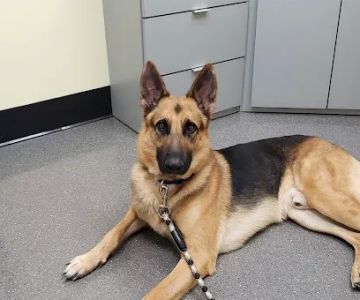What Can You Do With a Veterinary Degree? Exploring Career Options in the Animal Care Industry
Have you ever wondered what you can do with a veterinary degree? It’s a question that many students, animal lovers, and professionals in the field ask themselves. The path to becoming a veterinarian is long and challenging, but it also opens the door to a wide range of career opportunities. From clinical practice to research and teaching, the possibilities are diverse, allowing you to make a significant impact on animal health and welfare. In this article, we will explore the various career options available to those with a veterinary degree, along with some insights into each one.
1. Traditional Veterinary Practice: Treating Pets and Livestock
The most obvious career path for someone with a veterinary degree is working as a veterinarian in a clinical or private practice. Whether you focus on small animals, like dogs and cats, or large animals, such as livestock or exotic species, this is often the first thing that comes to mind when people think about becoming a veterinarian. As a veterinarian, your job would involve diagnosing, treating, and preventing illnesses in animals, as well as providing regular check-ups and vaccinations.
One of the key aspects of working in veterinary practice is the chance to form relationships with pet owners and help improve the quality of life for their animals. For example, I have a close friend who works as a small animal veterinarian, and she often shares how rewarding it is to see the positive outcomes of treatments and care she provides to her patients. It’s a job that not only requires medical expertise but also empathy and strong communication skills.
2. Specialized Veterinary Medicine: Focusing on Specific Fields
If you have a particular passion for a specific type of animal or area of veterinary care, you may want to pursue a specialization. Veterinary specialties include fields like surgery, dermatology, oncology, cardiology, and dentistry. Specializing in one of these areas allows you to become an expert in that field and provide advanced care to animals in need of specialized treatment.
For instance, veterinary surgeons often perform complex procedures like orthopaedic surgeries, soft tissue surgeries, and even organ transplants. On the other hand, veterinary dermatologists focus on diagnosing and treating skin conditions in animals, which can be especially rewarding when animals suffer from chronic skin problems. The options for specialization are vast, and a veterinary degree can open the door to numerous specialized career paths.
3. Veterinary Research and Pharmaceutical Development
If you’re interested in science and research, a veterinary degree also allows you to work in pharmaceutical development or research. Many veterinarians work in research labs where they study animal diseases, develop new treatment methods, and help advance the field of veterinary medicine. This role might involve working with universities, pharmaceutical companies, or government organizations to conduct research that leads to the development of new vaccines, medications, or medical devices.
One example is the research work done on vaccines that prevent diseases like rabies or canine parvovirus. Veterinary researchers are essential in ensuring that vaccines are safe and effective, which benefits not only pets but also livestock and wildlife. This career path combines veterinary knowledge with scientific research, and it’s ideal for those who want to contribute to improving global animal health.
4. Teaching and Academia: Sharing Knowledge with Future Veterinarians
For those who enjoy teaching and mentoring others, becoming a professor or lecturer in veterinary schools is another great option for a veterinary degree holder. Veterinary educators play a critical role in training the next generation of veterinarians by teaching courses in animal health, surgery, medicine, and more. They also often engage in research activities and contribute to academic publications.
I’ve known several professors who, while deeply involved in research, also enjoy the rewarding aspect of teaching and shaping young minds. Their passion for veterinary medicine often inspires their students to pursue their own careers in the field. For those who love both medicine and education, a career in veterinary academia can be incredibly fulfilling.
5. Veterinary Public Health: Improving Animal and Human Health
Another area where veterinary professionals can make a difference is in public health. Veterinary public health focuses on the relationship between animal health and human health. Veterinarians working in public health may be involved in monitoring and controlling animal diseases that have the potential to spread to humans, such as zoonotic diseases like salmonella or avian influenza.
Veterinarians in this field often work with government agencies, international organizations, and public health departments to create policies and strategies that prevent the transmission of diseases from animals to people. This career path is especially important in today’s interconnected world, where emerging diseases can quickly spread across borders.
6. Wildlife Veterinary Medicine: Caring for Wild Animals
If you have a love for wildlife, you might want to consider wildlife veterinary medicine. This field allows veterinarians to work with wild animals in their natural habitats or in wildlife rehabilitation centers. Wildlife veterinarians often treat injuries, diseases, and infections in animals like birds, reptiles, and mammals that live in the wild. In some cases, they may work on endangered species or contribute to conservation efforts.
Wildlife veterinary medicine is a unique and fulfilling career path. For example, veterinarians working in conservation often collaborate with biologists and conservationists to track and protect endangered species. The chance to work on the frontlines of conservation efforts and make a difference for wildlife is a major draw for many veterinarians.
Conclusion: Exploring the Vast Opportunities with a Veterinary Degree
As you can see, a veterinary degree offers a wide range of career options beyond traditional veterinary practice. Whether you’re interested in specializing in a particular area, conducting research, teaching, or working in public health or wildlife conservation, a veterinary degree provides the foundation for an exciting and meaningful career. No matter which path you choose, you’ll be making a significant impact on animal health and welfare.
For those who are passionate about animals and have the dedication and drive to pursue a veterinary career, the opportunities are endless. Whether you’re a student considering a veterinary degree or a current veterinarian looking to change careers, there’s a world of possibilities waiting for you. If you’re looking for more advice or recommendations about pursuing a career in veterinary medicine, feel free to visit Hidden Brook Veterinary for more resources and guidance.
SEO Title: What Can You Do with a Veterinary Degree? | Career Opportunities in Veterinary Medicine SEO Keywords: veterinary degree, veterinary careers, what can you do with a veterinary degree, veterinarian jobs, veterinary research SEO Description: Discover the career opportunities available with a veterinary degree. From clinical practice to wildlife conservation, explore the diverse paths you can take with a veterinary degree.










